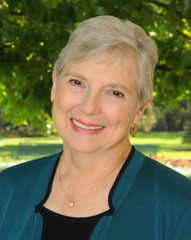The complexities of a mixed-orientation marriage increase exponentially when one or both partners suffer addictions. A recent email from a straight spouse highlighted this multi-layered affliction. Here is an excerpt from her message.
My husband and I met over 13 years ago. . . . Twelve years later he came out to me and to many acquaintances. At first I did not see how it could change what we had. Now that he has been out for a few months, I am having difficulty coping with my feelings. We still love each other, but I have lost my trust in him . . . . I feel all alone. We both suffer from alcoholism and drug addiction. We have over six months of recovery and are active members of AA. That is why this all came up. My husband was working on clearing the wreckage of his past, and his true self came to the surface.
Addictions themselves add enormous difficulty to the problems of a coming-out event. Two major life changes are happening at once—getting sober and revealing one’s true sexual identity. The entire family is affected by both challenges. While the12-Step program of Alcoholics Anonymous has effectively helped millions recover from dependence on alcohol and drugs, working through the steps transforms people in fundamental ways. They set out to conquer their addiction, but in the process they alter their ideals, standards, and daily life. An elemental shift is happening, whether it is the gay or the straight partner engaged in the AA program.
These psychic alterations further complicate their marital dilemma. For example, AA’s Step 4 requires a deep and fearless moral inventory of character defects and wrongs done. Step 5 demands openly admitting those wrongs to a neutral party. Steps 8 and 9 require making amends to anyone harmed by earlier actions. People spend months or years occupied with these steps toward sober living.
The drama is even more complicated when both partners are in AA. If they both fully participate in the 12-Step program, each understands the transformational process. But if only one partner experiences this psychic shift, the mate’s alienation increases. The chasm widens and the probability of saving their marriage diminishes even further. Still, the indisputable benefits of overcoming a drug and/or alcohol addiction make recovery efforts intrinsically worthwhile.
Perceived dangers to a rocky mixed-orientation marriage should not deter an alcoholic from joining AA. Day by day, recovering addicts and alcoholics reconfigure their very lives. Sincere adherence to AA’s 12 Steps can lead to freedom from addiction, while simultaneously mapping a very different life path. The work involves total honesty around self-centeredness, resentments, fear, and sexual behavior. A spiritual awakening often occurs as a person’s “Higher Power” is identified. Viewpoint, values, and lifestyle all drastically change. Lies and secrecy are no longer tolerated. Minds are clear, not muddled by chemicals. Ongoing personal assessments fuel even more change.
At best, compassion, forgiveness, gratitude, and humanitarian service are evidence of the personal growth encouraged by AA. The downside is that the partners may grow in different directions and recovery from addiction becomes another catalyst to separate. However, statistically, these gay-straight relationships have less than a 15% chance of survival under any circumstances, even if addiction is not present. The most positive conclusion, of course, is to have both partners living the life they choose, clean and sober, productive and proud, whether gay or straight, single or together.


